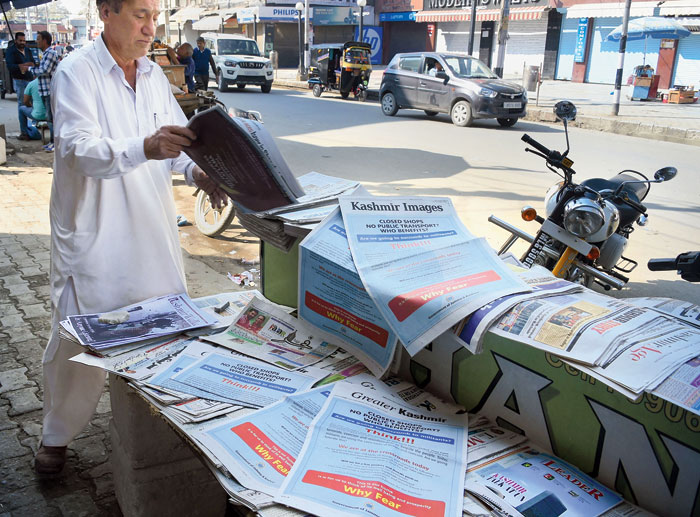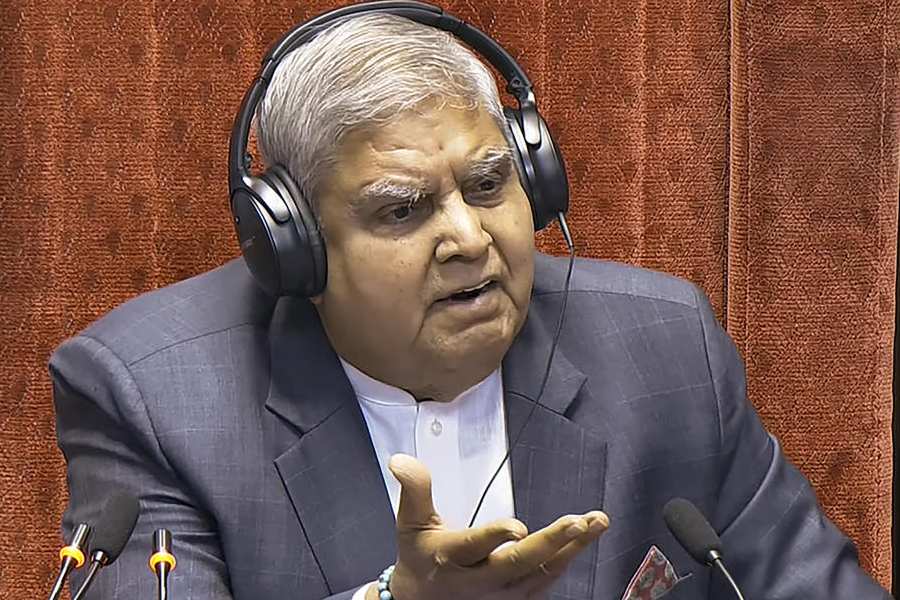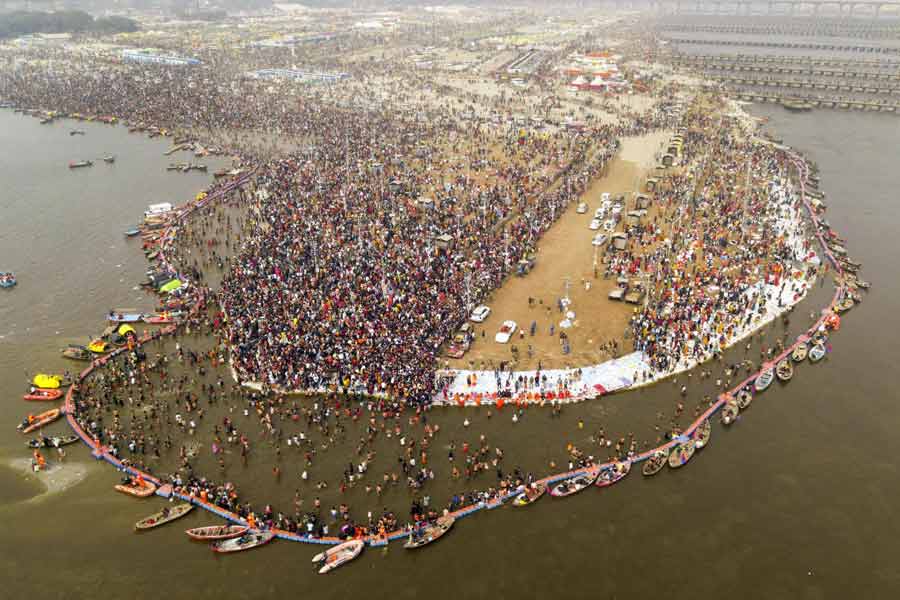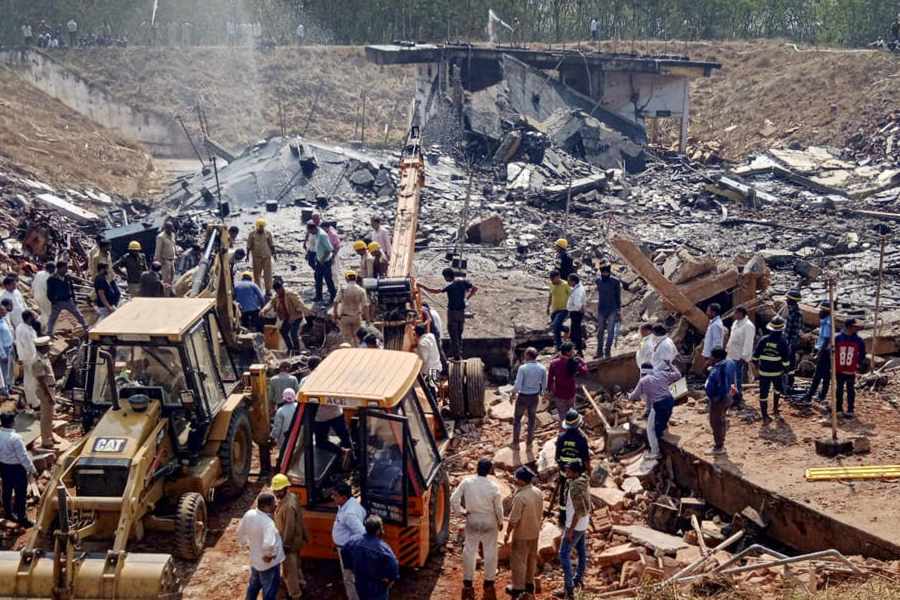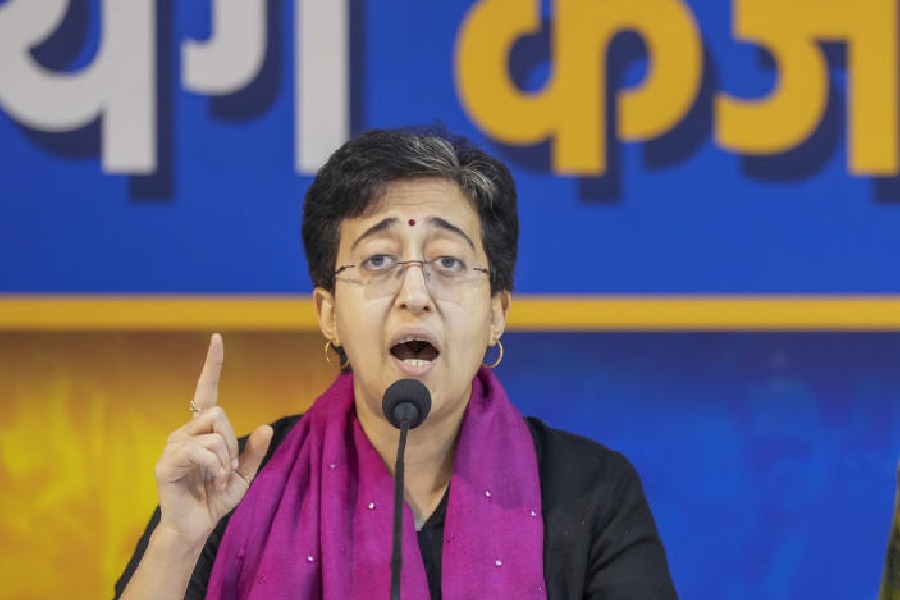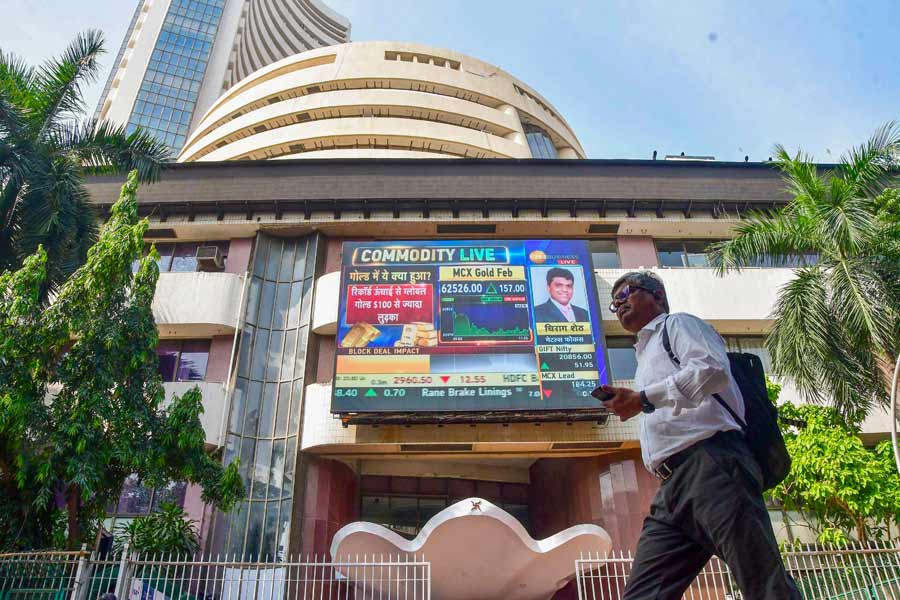Normality is a long way off in Kashmir, and look who’s admitting it.
Governor Satya Pal Malik’s administration on Friday pricked its own “all is well” balloon, not just acknowledging, even if obliquely, how bad the situation was in the Valley but blazoning it across the front pages of newspapers.
The admission came in the form of an advertisement blitz in local newspapers, urging people to resume their businesses and send their children to school.
“Closed shops. No public transport? Who benefits?” read the full-page ads on the front pages of several local English-language dailies, including Greater Kashmir and Rising Kashmir.
They contained a plea to parents to secure “a rightful education” and “secure the future for our children”, virtually owning up that students had been staying away from the officially reopened colleges and schools.
The ads belied the “Kashmir is normal” narrative that the central and state governments had been peddling since day one of the 10-week-old security clampdown that accompanied the scrapping of Jammu and Kashmir’s special status on August 5.
However, Friday’s admission came with a twist, the government claiming that the closure of businesses and public transport and the reluctance of students to rejoin classes owed to “threats”. It urged people not to succumb to intimidation.
“We are at the crossroads today. Do we permit the age-old tactic of threats and coercion to influence us? Will threat and misinformation prevail or will we take informed decisions on what is best for us?” the advertisements read.
“Will we let a few posters and threats push us into not resuming our businesses, not earning our legitimate livelihood?”
Businesses and public transport have been shut in the Valley since August 5, first because of curfew-like restrictions imposed by the administration, and later in a nod to public sentiments. The shopkeepers open just for a few hours in the morning and evening.
Valley politicians underlined that the ads had busted the official claims about normality.
“On #Day68, the govt’s advertisement in local newspapers busts the myth of normalcy in Kashmir. Just a few days back, the Indian embassy in Washington put out this ‘all is well’ email,” Congress leader Salman Soz said.
Some people appeared angry with the local newspapers for publishing the ads.
“You are shocked to see these front-page advertisements. There has not been a word in these newspapers criticising the government decision to scrap (certain provisions of) Article 370,” a former bureaucrat said.
The government had stopped taking out advertisements in some of these newspapers several months ahead of the August 5 clampdown, and relented only after these dailies began publishing only the administration’s version of events.
The ad campaign claimed that Kashmir’s people had been misled for 70 years and become “victims of a vicious campaign and motivated propaganda”.
“This is our home. It is for us to think of its well-being and prosperity. Why fear?” it asked.
“While separatists sent their children to exotic lands to study, work and earn, they instigated the common people to push their children into violence, stone-pelting and hartals. They used threats of terrorists, coercion and misinformation to beguile the people.”
Two central ministers had earlier this month aired the “all is well” stand. On October 6, I&B minister Prakash Javadekar had said the situation was “normal” in the Valley, with its people “happy” with the revocation of the state’s special status.
Earlier, Union minister of state for home G. Kishan Reddy had said the situation was “getting normal”.

